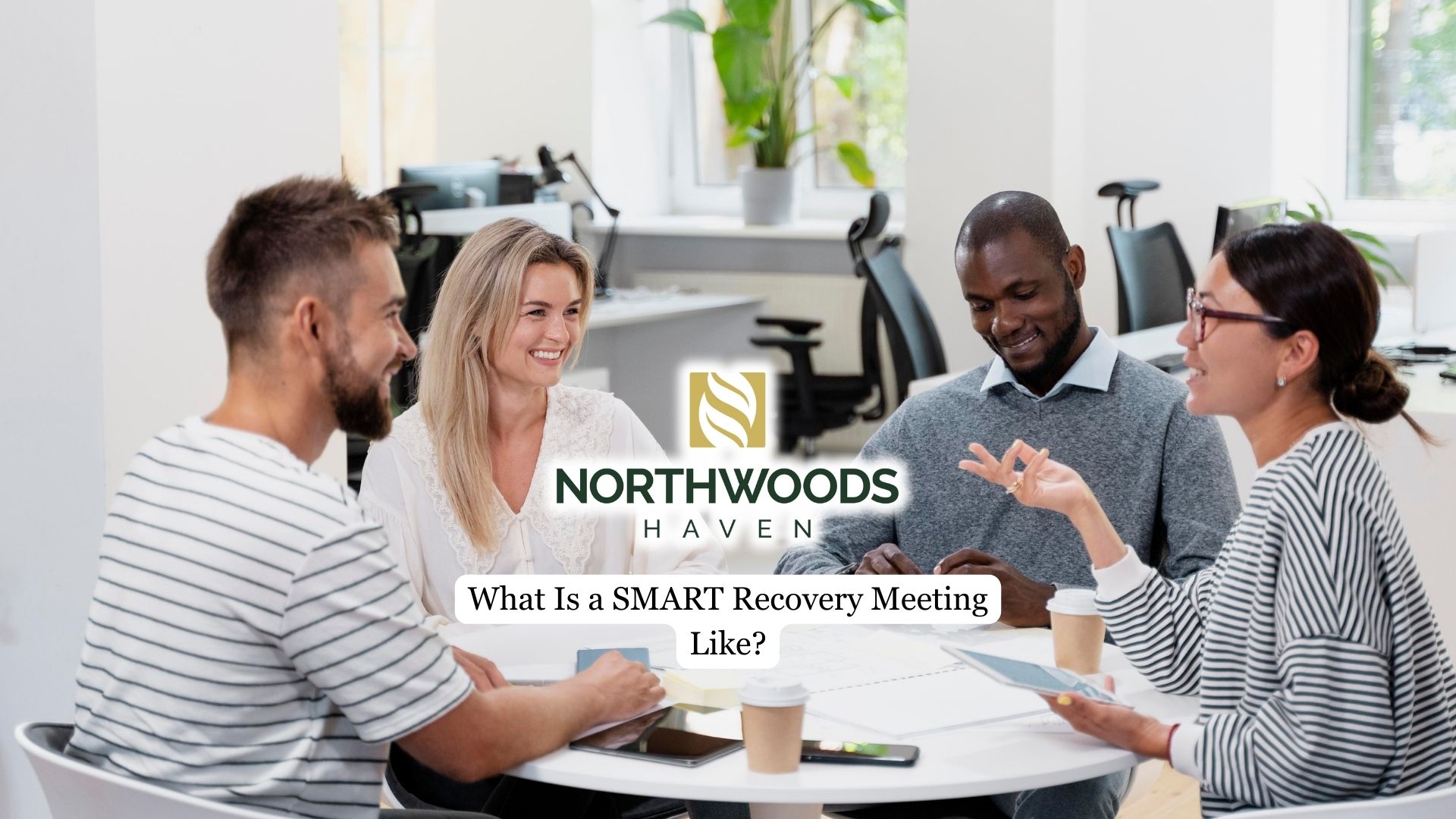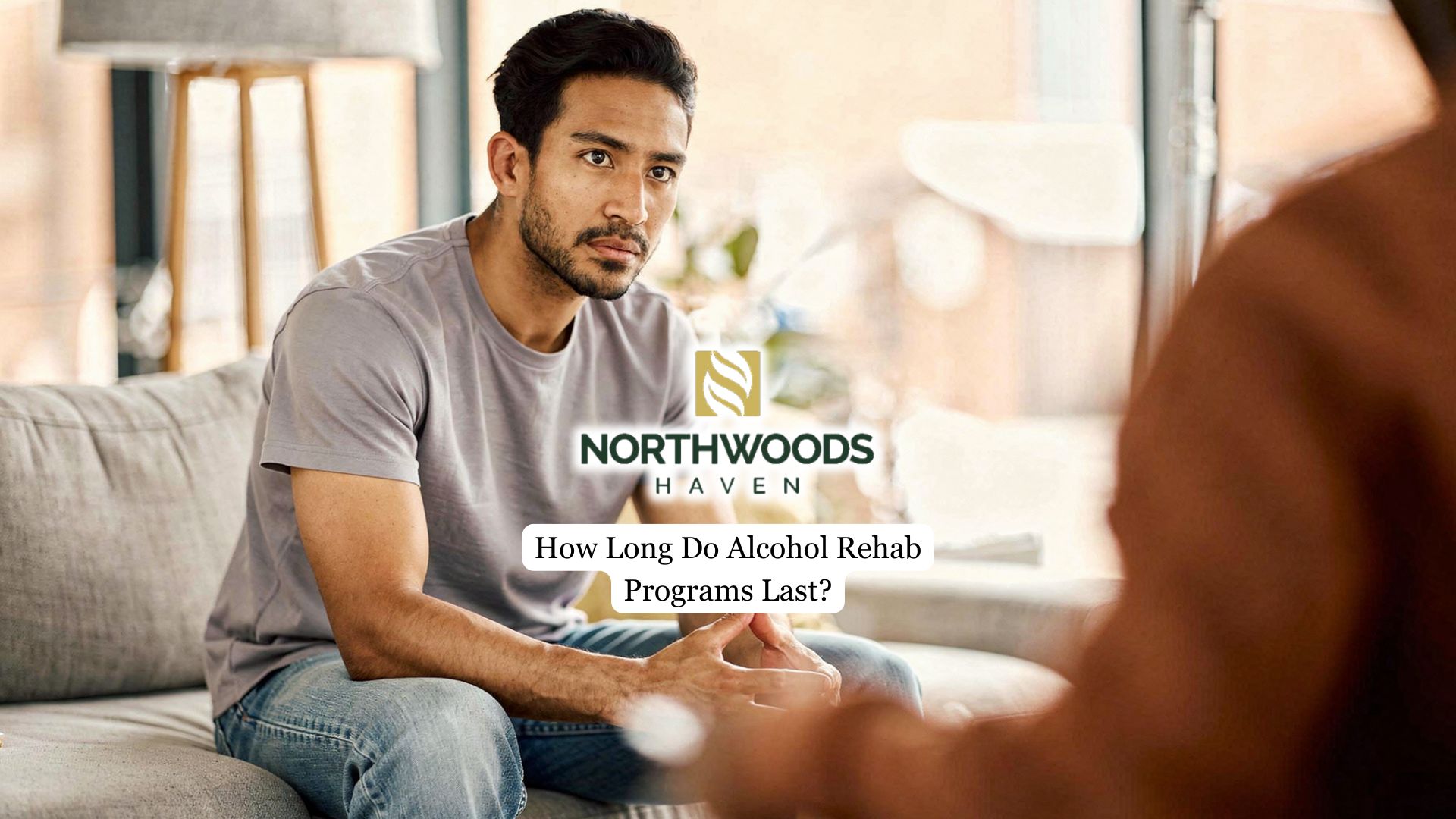SMART Recovery meetings are an alternative to traditional support groups, providing a structured, science-based approach to overcoming addiction and related behaviors. These gatherings are designed to be collaborative and empowering, allowing participants to take an active role in addressing substance use challenges and managing their recovery journey.
In this article, we’ll break down what you can expect in a SMART Recovery meeting, from its structure to the tools it offers for overcoming addiction.
The Purpose of SMART Recovery Meetings
At their core, SMART Recovery meetings are centered on self-empowerment and evidence-based strategies. Unlike programs that rely on spiritual or faith-based approaches, they emphasize personal choice, responsibility, and scientifically grounded methods for change. The goal is to equip participants with practical tools they can use both inside and outside the meetings to reduce harmful behaviors and build a healthier life.
SMART Recovery appeals to many because it does not require adherence to a specific belief system. Instead, it allows people to define their own values and goals while receiving structured guidance. This approach creates a supportive environment for individuals who want to focus on tangible, research-driven techniques that support addiction recovery.
For some, these meetings work best alongside outpatient addiction treatment programs, where counseling and medical guidance reinforce the same skills discussed in groups, creating a natural connection between professional care and peer support.
The Structure of a Meeting
A SMART Recovery meeting typically lasts around 60 to 90 minutes and are led by trained facilitators, many of whom have personal experience with addiction and recovery. Each gathering begins with introductions, giving participants a chance to share their name and their current focus in recovery. No one is pressured to disclose more than they are comfortable with, which helps create a safe and inclusive space.
After introductions, the facilitator often invites participants to bring up challenges they are facing. The group then works together to discuss strategies, brainstorm solutions, and provide encouragement. The focus is on real-life application of skills, making the meetings both practical and relatable. The atmosphere is open and nonjudgmental, encouraging honest reflection and mutual support throughout the session.
The Four-Point Program Framework
The foundation of SMART Recovery is its Four-Point Program, which guides the flow of each meeting. While it may not always be addressed in a strict order, these themes are interwoven throughout discussions:
- Building and maintaining motivation – Helping individuals clarify why they want to change and what they hope to gain from recovery.
- Coping with urges – Identifying triggers and learning strategies to manage cravings effectively.
- Managing thoughts, feelings, and behaviors – Developing tools to handle negative emotions and unhelpful thinking patterns.
- Living a balanced life – Creating healthy routines and relationships that support long-term well-being.
These points are more than abstract ideas—they become practical anchors for participants as they move forward in recovery. Revisiting them regularly, individuals build stronger skills and gradually gain confidence in their ability to manage life without relying on addictive behaviors.

Tools and Techniques Used in Meetings
SMART Recovery meetings often introduce participants to cognitive-behavioral techniques and motivational strategies. Common tools include cost-benefit analysis, role-playing scenarios, and thought-recording exercises. and the ABC model, which breaks down situations into Activating events, Beliefs, and Consequences to challenge destructive thought patterns and build healthier coping mechanisms.
A facilitator may guide the group through a cost-benefit analysis of substance use versus sobriety, helping participants clearly see the trade-offs. Others may practice communication strategies to prepare for difficult conversations in their personal lives. These exercises are practical and designed to be carried into everyday situations, making the skills highly adaptable.
They may also recommend worksheets and self-monitoring techniques that participants can complete outside of the meeting. This reinforces the idea that recovery is not confined to group sessions but becomes part of daily living.
The Role of Group Interaction
One of the defining features of a SMART Recovery meeting is the active participation of everyone involved. Unlike lecture-style formats, these gatherings are conversational and collaborative. Participants are encouraged to share their experiences, offer suggestions, and learn from one another. This peer interaction fosters accountability while also reducing the sense of isolation many people feel during recovery, which can be a protective factor against relapse.
The group dynamic is built on respect and equal contribution. Unlike programs where sponsorship or hierarchy plays a central role, SMART Recovery meetings function as a shared exchange of knowledge and support. This structure helps participants feel empowered, knowing that their voice matters and that they can both give and receive valuable insights.
Accessibility and Flexibility
SMART Recovery meetings are available in many communities, as well as online for those who prefer virtual participation. This accessibility allows individuals to choose a format that best fits their lifestyle and comfort level. Online meetings have become especially important for people in rural areas or those balancing work, school, or family responsibilities.
Another strength is its flexibility in addressing a wide range of issues. While many participants join to address substance use, others may be dealing with gambling, overeating, or other compulsive behaviors. The inclusive nature of the program ensures that anyone seeking healthier habits can find support within this framework.
Final Thoughts from Northwoods Haven Recovery
A SMART Recovery meeting offers a structured, supportive environment where individuals can gain practical tools, peer connection, and renewed confidence in their ability to change. Focusing on evidence-based methods and self-empowerment, these meetings provide a strong foundation for building lasting recovery.
At Northwoods Haven Recovery, we’ve integrated multiple proven approaches to healing, including SMART Recovery. Our outpatient addiction rehab in Minneapolis, MN, helps address the root causes of substance use with therapy, counseling, and support. Combining professional care with peer support, we guide individuals toward lasting recovery.



